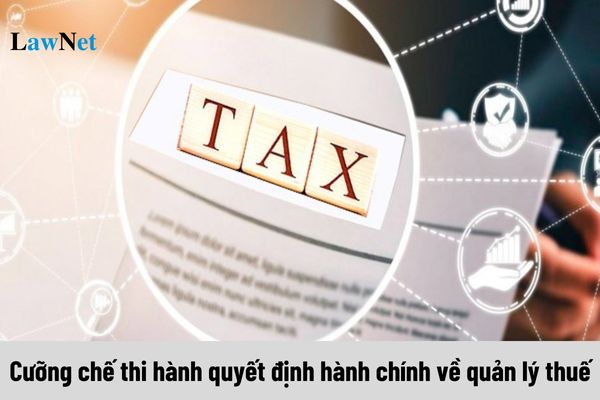What are cases of tax enforcement for individuals in Vietnam?
What are cases of tax enforcement for individuals in Vietnam?
According to Article 124 of the Law on Tax Administration 2019, the cases of tax enforcement include:
- Taxpayers with overdue tax debts exceeding 90 days from the deadline.
- Taxpayers with overdue tax debts after the extension period for tax payment ends.
- Taxpayers with overdue tax debts who disperse assets or flee.
- Taxpayers who do not comply with administrative penalty decisions for tax management violations within the period stated in such decisions, except in cases where execution of the penalty decision is postponed or suspended.
- No enforcement measures are taken if the taxpayer is allowed by the tax authority to defer tax debts within the deferment period, does not incur late payment interests per the Law on Tax Administration 2019, or is authorized to gradually pay tax debts within a period not exceeding 12 months from the start of the tax enforcement period.
The gradual payment of tax debts is considered by the head of the direct management tax authority based on the taxpayer's request and must be guaranteed by a credit institution. The Minister of Finance prescribes the number of installments and the dossier, procedures for gradual payment of tax debts.
- No enforcement measures are taken for taxpayers with overdue customs fees and transit fees for goods and vehicles.
- Individuals who legally represent the taxpayer must fulfill the company's tax obligations, which are under enforcement of administrative decisions on tax management, before leaving the country and may have their exit temporarily suspended according to immigration and emigration laws.

What are current tax enforcement measures in Vietnam?
According to Article 125 of the Law on Tax Administration 2019, tax enforcement measures include:
- Tax enforcement measures include:
+ Deductions from the accounts of the entity subject to enforcement of administrative decisions on tax management at the State Treasury, commercial banks, or other credit institutions; account freezes;
+ Wage or income deductions;
+ Suspension of customs procedures for exported or imported goods;
+ Suspension of invoice usage;
+ Seizure and auction of seized assets following legal regulations;
+ Collecting money or other assets of the entity subject to enforcement of administrative decisions on tax management held by agencies, organizations, or individuals;
+ Revocation of business registration certificates, business registration certificates, cooperative registration certificates, investment certificates, establishment and operation licenses, or practice licenses.
- tax enforcement measures specified in Clause 1 of Article 125 of the Law on Tax Administration 2019 cease to be effective once the overdue taxes are fully paid into the state budget.
- The application of enforcement measures for administrative decisions on tax management is implemented as follows:
+ For enforcement measures specified in Points a, b, and c of Clause 1, Article 125 of the Law on Tax Administration 2019, the tax administration authority applies appropriate enforcement measures based on the actual situation;
+ For enforcement measures specified in Points d, dd, e, and g of Clause 1, Article 125 of the Law on Tax Administration 2019, if the previous enforcement measures cannot be applied, the tax administration authority moves on to subsequent enforcement measures;
+ If an enforcement decision on certain measures has not yet expired but proves ineffective, and the tax administration authority has sufficient information and conditions, they shall revert to the previous or subsequent enforcement measures as prescribed in Clause 1, Article 125 of the Law on Tax Administration 2019.
What is the time limit for imposition of penalties for tax administrative offences in Vietnam?
According to Article 137 of the Law on Tax Administration 2019, the time limit for imposition of penalties for tax administrative offences is as follows:
- For tax procedure violations, the time limit for penalties is 2 years from the date of the violation.
- For tax evasion acts that do not reach the level of criminal prosecution, acts of false declaration leading to insufficient payable tax amounts or increased tax amounts eligible for exemption, reduction, refund, or non-collection, the time limit for penalties is 5 years from the date of the violation.
- Beyond the time limit for imposition of penalties for tax administrative offences, the taxpayer is not penalized but must still pay all outstanding taxes, evaded taxes, exempted, reduced, refunded taxes improperly collected, and late payment interests to the state budget within 10 years from the date the violation is detected.
In cases where the taxpayer does not have a taxpayer registration, they must pay all outstanding taxes, evaded taxes, and late payment interests for the entire period from the date the violation is detected.

